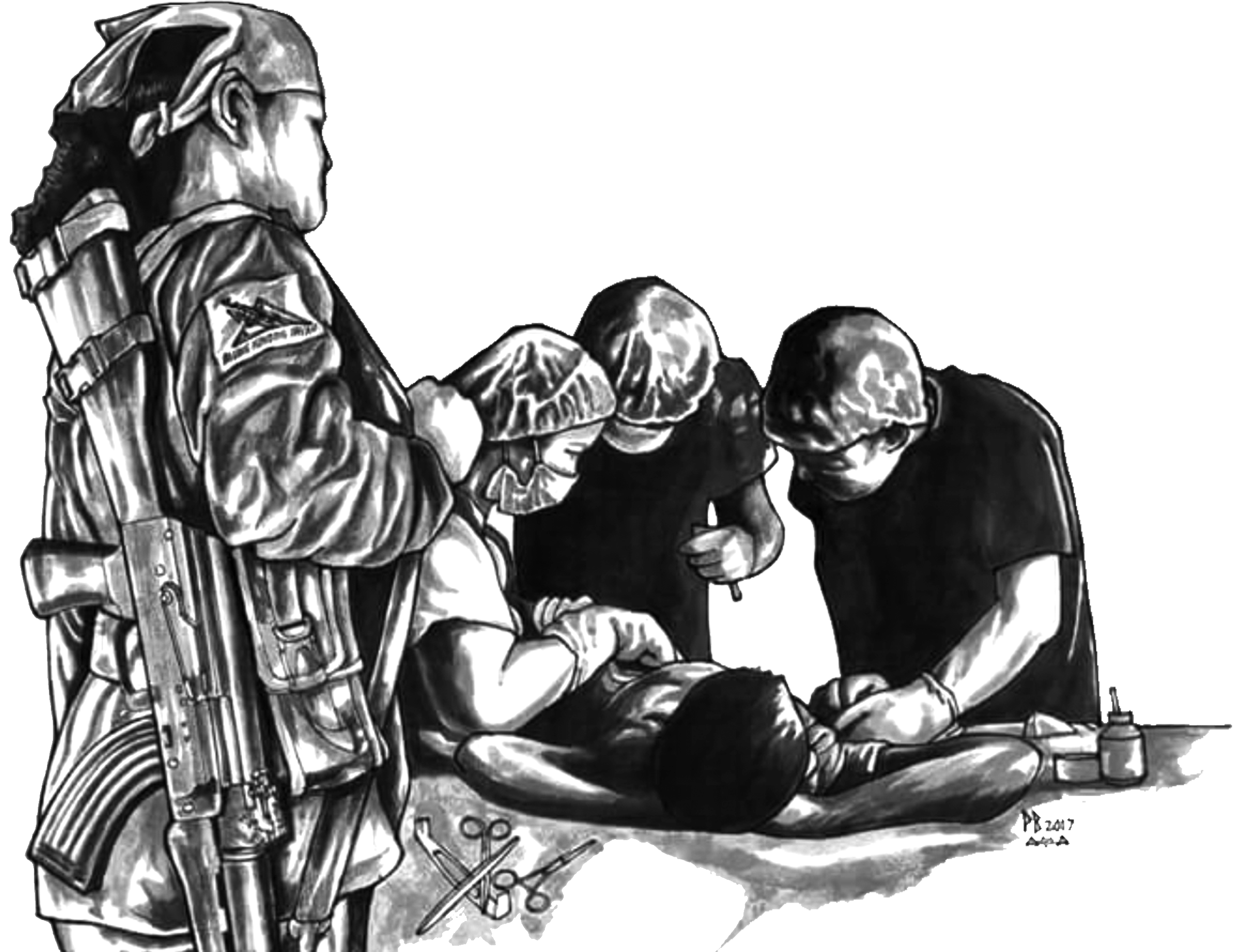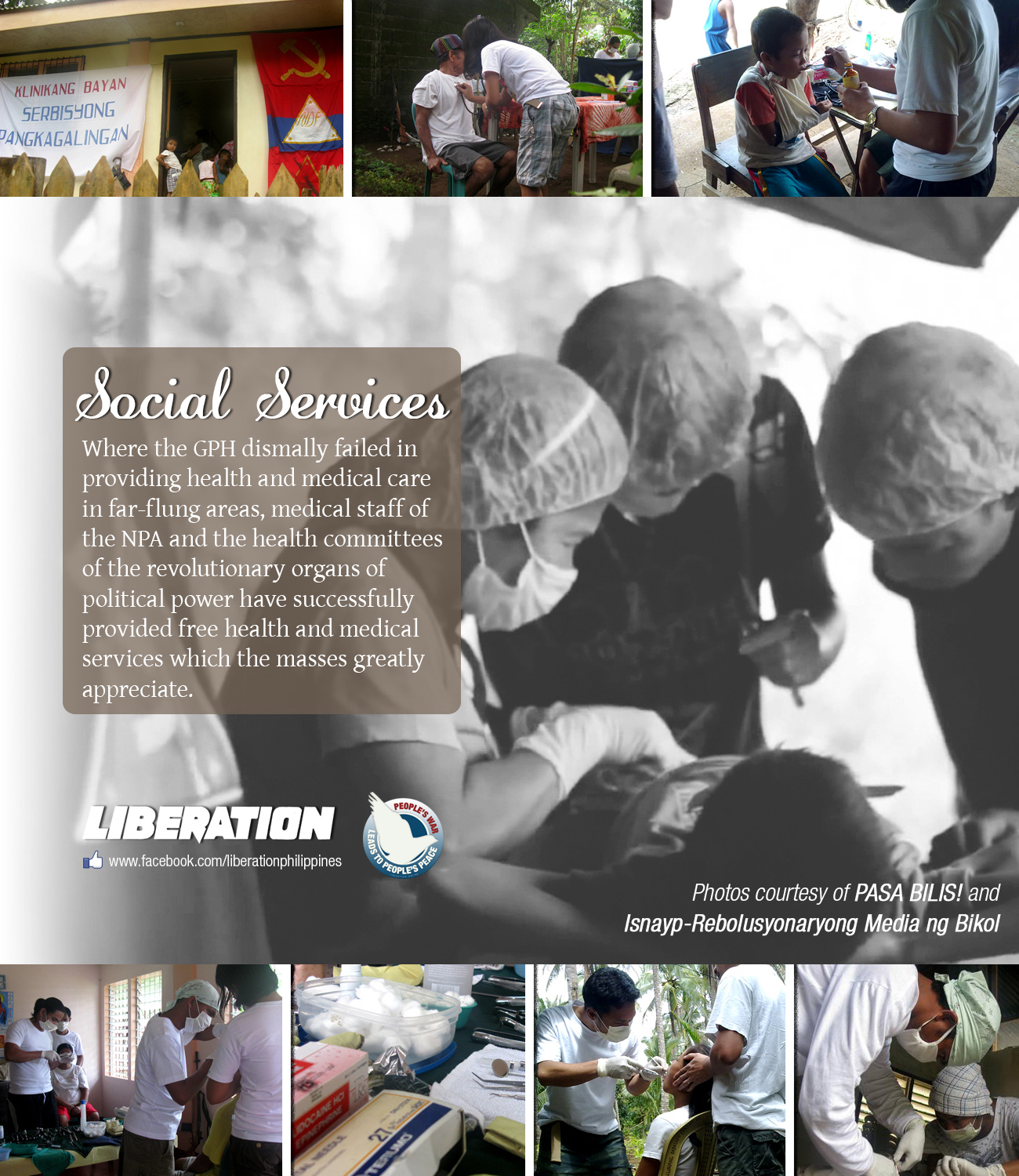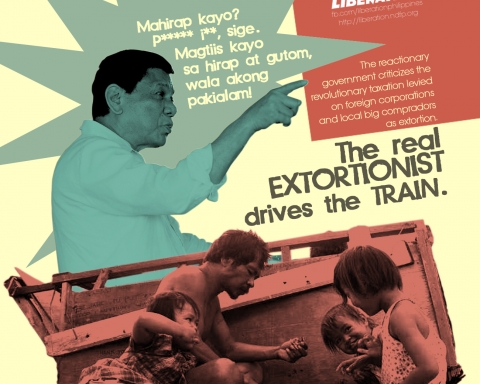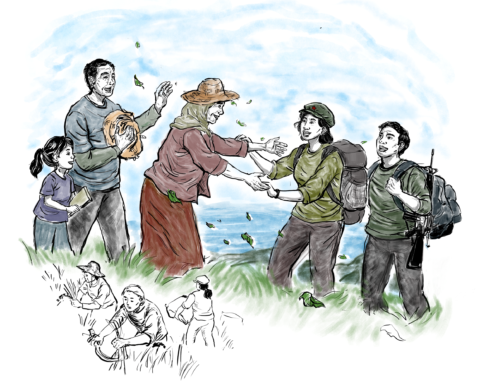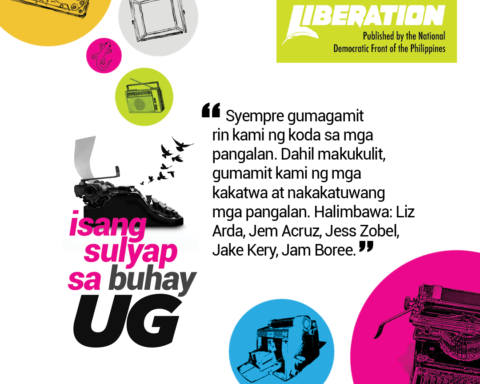by Pat Gambao
Taxation is an essential function of the State as it correlates with its ability to exercise power and to carry out its programs and policies in a sustained way.
In a State dominated by the reactionary ruling classes, the revenues generated from taxation are intended primarily to boost its power to control and exploit, not to serve the people. Such a State saps the lifeblood of the working class, the peasantry and the middle bourgeoisie for revenues to maintain the grandiose lifestyle of its rulers and finance its fascist instruments of suppression and oppression—the armed military and police, the courts, the jails. Its public service is a pittance. It only aims to make its subjects beholden to it and create a culture of passivity and surreal contentment.
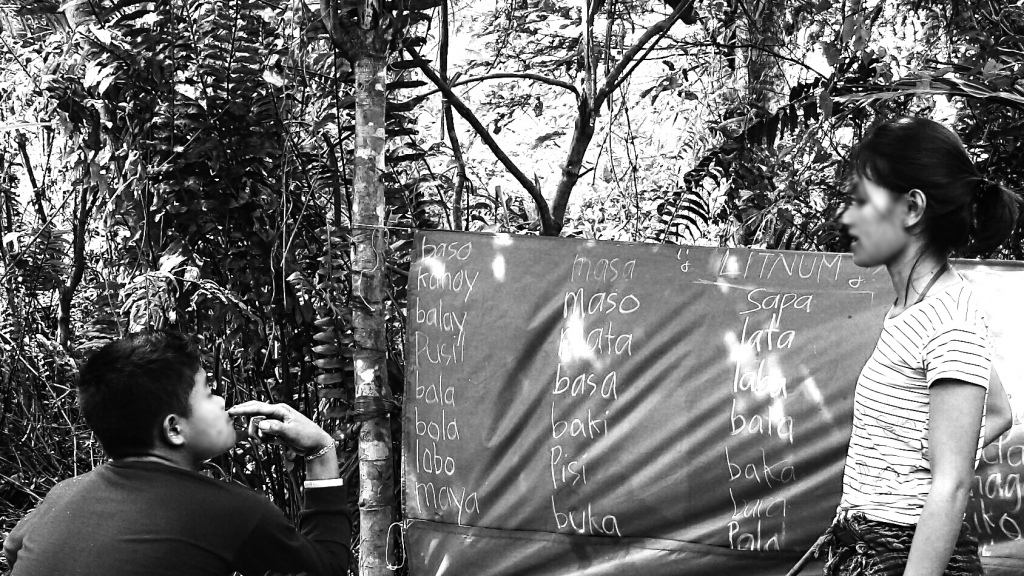
Whereas taxation is a legitimate and an inherent right of the State, this is abused by the reactionary governments at the expense of the destitute masses and continuously impoverished masses.
This is what happens in the Philippines. Revenues from taxes are appropriated in favor of the ruling classes who sit at the helm of power, as well as of their oligarch allies, their US imperialist master with its neoliberal impositions and, of course, the State security forces who protect and defend them to ensure their perpetual rule.
Bureaucrat capitalism
A big chunk of revenues coming from the blood and sweat of the people ends up in the pockets of bureaucrat capitalists for personal aggrandizement and for squandering in their luxurious living and debased habits. Though it has long been an open secret where lawmakers’ pork barrels for public service projects go, it was only after a whistle blower in trouble came out that the scandal exploded into their very faces and shook the foundation of the supposedly august chambers of Congress.
The “pork barrel scam”, involving lawmakers and government officials, confirms how deeply entrenched corruption is in the bureaucracy and the legislature. No less than the President Noynoy Aquino figured in the controversy because of his administration’s manipulation of savings from budget appropriations—the so-called Disbursement Acceleration Program (DAP)—to fuel its political patronage and to pamper the State’s war-making and killing machine. Bureaucrat capitalism is indeed an abominable malady ravaging the Philippine society.
Taxes are also earmarked for the payment of foreign debts from imperialist banks and financial institutions that have never really served the interests and welfare of the people. Such debts only bury the people deep in misery as they are the ones who shoulder the brunt—not only of the repayment but also the pernicious impacts of loan conditionalities.
Worse, most of the revenues from the people’s taxes are gobbled up by the coercive apparatuses of the State that train their fascist attacks on people fighting for social justice and their rights.
The current administration’s proposed bill on taxation, the Tax Reform for Acceleration and Inclusion (TRAIN), will supposedly correct existing inequities in the present tax law.
However, while the range of tax exemptions have been expanded to include the middle income group, many provisions in the bill will eventually take away whatever little relief the tax reform bill offers. Indirect taxes for instance, the increase in excise tax on petroleum products such as diesel and LPG, and taxes on sugar sweetened products, such as 3-in-1 coffee, soft drinks and juices will surely have adverse repercussion that will hurt the poor most. Expected as consequences are transport fare increases and the domino-effect of price boosts on commodities and utilities.
The government promises safety nets, in the form of discounts and cash dole-outs, to counter such new burden. But as has been proven many times before, no safety net can match the knack for profiteering of wily capitalists.
Revenues for the people
Meanwhile, the People’s Democratic Government has imposed its own taxes on big foreign and local comprador business corporations and landlords whose properties and operations are within its territories. Taxes are levied on the occupancy of the land and the exploitation of the natural resources in these areas which truly belong to the people and which should primarily benefit them. Businesses are required to secure permits to operate in the guerrilla fronts.
Although the revolution draws strength primarily from the masses’ support and obtains its weapons, mainly from the enemy through victorious encounters or through raids and tactical offensives, revenues from revolutionary taxation subsidize the operations of the organs of political power of the revolutionary movement led by the Communist Party of the Philippines (CPP), the New People’s Army (NPA) and the National Democratic Front of the Philippines (NDFP). But most importantly, revolutionary taxes are allotted for the development of the communities to uplift the life of the masses, filling up a vacuum created by long government neglect. These revenues are used to put up schools, including those for adult literacy and numeracy program; to provide health and medical services, as well as training of paramedics; to finance the projects of the revolutionary organizations to increase food production, livelihood development, formation of cooperatives and relief and rehabilitation in times of calamities.
Role of NPA
The NPA is primarily responsible for the collection of revolutionary taxes. The amount of tax to be collected depends on the resources of the corporations.
Revolutionary taxation through the NPA has been going on for a long time. In fact, President Duterte during his 20-plus years as Mayor of Davao City, was long aware of, and not adverse, to it. Addressing the delegates of the Davao Trade Expo in October 2013, the then mayor of Davao City advised his audience to factor in their investment payments for the revolutionary taxes to the revolutionary movement. Citing the “historical injustice committed on the people” as rationale for revolutionary tax, he urged the businessmen: “If you pay to the BIR, you prepare also for the NPA.” However, on April 2, 2017, the emotionally volatile Duterte retracted this advice after he visited some wounded soldiers from an encounter with the NPA. In fact, he has since demanded from the revolutionary forces to cease collecting revolutionary tax, including such demand among the conditions he peremptorily set for the resumption of peace negotiations with the NDFP that he cancelled on February 4, 2017.
Subsequently, the Cabinet Security cluster wanted to include the stopping of revolutionary taxation, which it called “extortion”, among the provisions of a bilateral or joint interim ceasefire agreement it tried to push during the 4th round of formal GRP-NDFP negotiation in April.
The NDFP negotiating panel effectively dealt with the issue by placing in one part of the “Agreement on An Interim Ceasefire” this paragraph: “Matters regarding a single government authority and taxation shall be discussed and resolved in forging the Comprehensive Agreement on Political and Constitutional Reforms within the framework of the proposed Federal Republic of the Philippines.”
 Neither terrorism nor extortion
Neither terrorism nor extortion
The ruling classes, who never want a dent on their wealth, attempt to discredit the revolutionary movement by labelling revolutionary taxation as acts of extortion and terrorism. DND Secretary Delfin Lorenzana echoed these sentiments. He even issued a statement a day before the start of the fourth round of peace talks and upon the declaration of an all-out war, accusing the revolutionary movement of being anti-development, anti-progress and anti-poor, as if the development and progress he crows about ever benefited the poor.
According to the NDFP, the revolutionary movement enforces taxation in a manner understood by the tax payers. Although revolutionary taxes are obligatory, the NPA is open to negotiation, in particular on the amount to be paid. But big businesses which refuse to comply face corresponding retribution. The “element of class coercion” is applied when entities of the exploiting classes refuse to pay their tax obligations, as well as when they disobey or disregard the laws and regulations being enforced in the guerrilla zones.
Chief NDFP peace negotiator Fidel Agcaoili explained that since the NDFP, unlike the GRP, can neither expropriate properties, nor confiscate equipment of these corporations because it does not have the means to keep or dispose of these, the NPA resorts to incinerating the equipment. He has suggested that instead of setting them on fire to just disable the equipment and temporarily halt business operation.
Unfortunately, the reactionary government has connived with these transnational and local comprador corporations. It has sanctioned the formation of an Investment Defense Forces composed of the Philippine Army, the Citizen Armed Forces Geographical Unit (CAFGU), the Investment Defense Force (IDF), and the Special Civilian Armed Auxiliary (SCAA) to protect the comprador firms and eliminate all hindrances, including the affected residents who put up resistance to their business operations.
There are also some bad elements—syndicates or pawns of the Armed Forces of the Philippines-Philippine National Police-Citizens’ Armed Forces Geographical Unit (AFP-PNP-CAFGU)—who misrepresent the NPA, intimidate big corporations and businesses to extort “protection money”. These people put to bad light the reputation of the revolutionary movement. The movement is coming up with measures to counter the practice.
People’s interest
In the implementation of revolutionary taxation, the NDFP upholds foremost the interest of the people and the environment. According to the NDFP, payment of taxes is not a license to destroy the environment, to deplete the natural resources and national patrimony, to harm the people’s livelihood; nor to compromise the struggles of the peasants for land or lower land rent and the workers for a living wage, better working conditions and right to unionize.
In consonance with the NDFP policy on environmental protection and ecological conservation, the people work towards its attainment while vehemently protesting the activities of these mining and logging corporations.
Living witness is the way they rose up from the devastating super typhoon Pablo/Bopha that hit Davao Oriental, Compostela Valley and parts of the Caraga region in December 2012. Volunteers from all over the place, including students and professors, campaigned to reforest the damaged mountain environs.
The NDFP treats small and medium enterprises differently. They are encouraged to develop and prosper as this is mutually beneficial to them and the communities.
Some nationalist businessmen, enlightened gentry—friends who believe in the justness and the exigency of the Philippine revolution contribute financially in support of the democratic struggle.
The compliance with revolutionary taxation, as well as with the laws and rules prevailing in the guerrilla zones, is in recognition of the growing strength of the red political power. The implementation of the revolutionary taxation also ushers in the masses’ capacity for self-reliance as they put to productive use the revenues collected.

